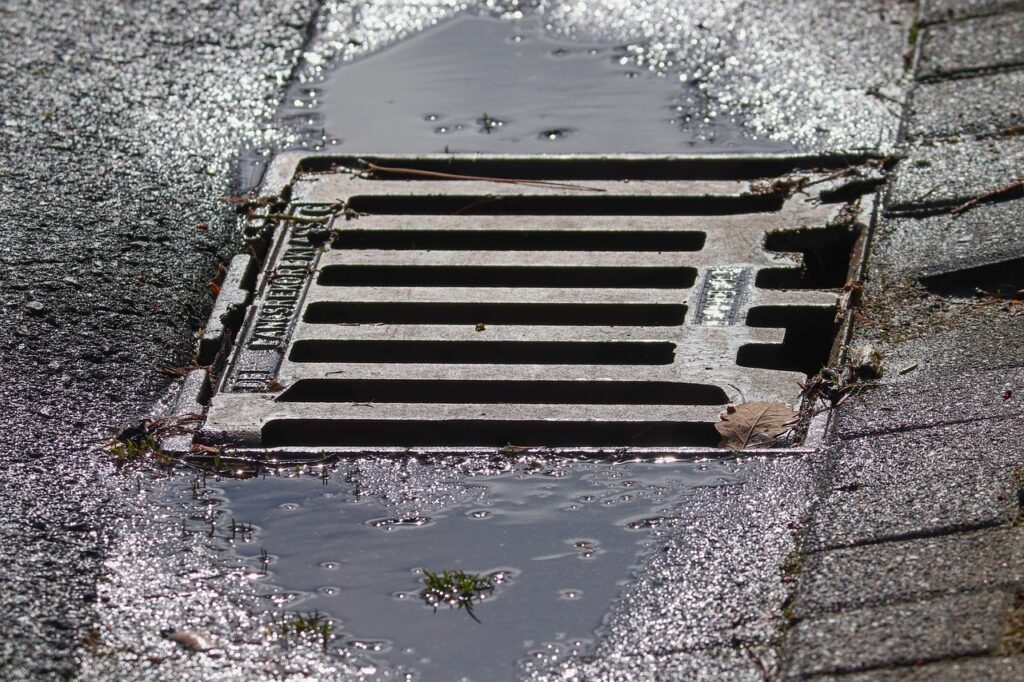What are Stormwater Drains and How Well Do Drain Filters Work?

What are stormwater drains, and how do they help control and prevent flooding and pollution? Plus, learn more about the effectiveness of stormwater drain filters.
When it comes to environmental safety, stormwater drains are an essential part of the equation. Stormwater drainage systems are crucial in controlling and managing run-off from rain or melting snow that can cause flooding and pollution if left unchecked. Businesses need to understand what stormwater drains are, how they should be adequately maintained, and what regulations apply when dealing with them.
What are Stormwater Drains?
Stormwater drains capture and transport rainwater run-off from hard surfaces such as roads, parking lots, and roofs. They help prevent flooding by controlling water flow away from buildings and other structures. Stormwater drains come in various shapes and sizes depending on their purpose.
Definition
A stormwater drain is an engineered structure that captures surface run-off water or precipitation that falls onto impervious surfaces such as roads, sidewalks, driveways, and rooftops, then transports it away from those areas to reduce flooding risk.
Types of Stormwater Drains
The most common types of stormwater drains include catch basins (also known as dry wells), underground pipes with grates over them for safety purposes, curb inlets (typically located along curbs or gutters), swales (shallow depressions used to direct water flow away from buildings) and detention ponds (which temporarily store excess water).
Benefits of Stormwater Drains
The primary benefit of stormwater drainage systems is that they help protect against flooding by controlling the amount of water flowing into streets or other areas that could cause damage. Additionally, these systems can filter out pollutants before they enter rivers or streams, helping keep our waterways clean. Finally, adequately installed stormwater drainage systems can also reduce erosion, which can lead to soil loss over time if not addressed promptly.
How to Maintain Stormwater Drains?
The following tips can help ensure that your stormwater drains remain in proper working condition and continue to provide the benefits they were designed for:
Cleaning and Maintenance
Regularly cleaning stormwater drains is essential to ensure they remain in good working order. This includes removing debris, leaves, and other materials that can block the drain or cause flooding. It’s also essential to check for any cracks or damage that may have occurred over time. If necessary, repairs should be made as soon as possible to prevent further damage from occurring.
Proper Disposal of Waste Materials
To avoid contamination of stormwater systems, it’s essential to properly dispose of all waste materials, such as oils, chemicals, and hazardous substances. These should never be poured down a stormwater drain, as this can lead to pollution and health risks for those living nearby. Instead, these materials should be disposed of at an appropriate facility or recycling centre.
Regular Inspections
Regular inspections are essential for maintaining stormwater drains; this helps identify potential issues before they become serious problems. Additionally, if any repairs are necessary, they should be completed by a qualified professional to ensure the job is done correctly and safely.
How Well Do Drain Filters Work?
Drain filters capture and filter pollutants from stormwater run-off before it flows into natural waterways. These devices typically consist of geotextile fabric (a type of synthetic material) placed over a storm drain inlet. The fabric acts as a barrier, trapping debris, sediment, oils and other pollutants while allowing clean water to flow through.
Drain filters are effective in removing certain pollutants from stormwater run-off. However, they are not a one-stop solution. It’s important to note that these devices can only capture particles larger than the mesh size of the filter, so smaller pollutants and chemicals may still make it through.
For this reason, you should use drain filters in conjunction with other stormwater management practices, such as detention ponds and swales, which can help reduce the amount of pollutants entering natural waterways.
Drain Filters You Can Count on
Ecospill is a reliable and trusted source for drain filtration and protection products. We provide customers with high-quality drain filters and seals made from durable, long-lasting materials. All of Ecospill’s products meet the standards set by Australian regulatory authorities, ensuring that drains are protected from debris, debris damage, water contamination, and other dangers. For customers in need of stormwater management advice, Ecospill offers technical instruction along with helpful installation tips. Contact us today.
